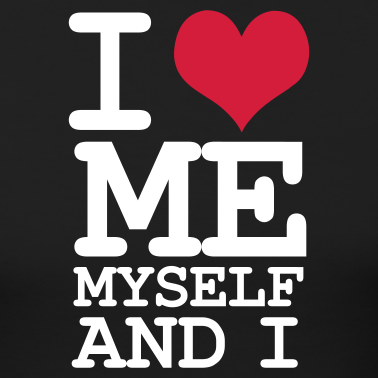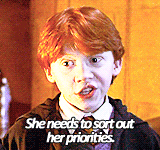I recently had a chat with another writer about Point of View. The story she is currently working on is in first person, like my first book, Dark Mountains, was written. That conversation spurred this blog post topic:
What is Point of View, more commonly knows as: POV?
POV is what viewpoint in which the story is being written.
Is it multiple characters speaking/narrating? Is it a new point of view every chapter like George RR Martin writes in Game of Thrones? Is it first person, told through the eyes of one character, like Stephanie Meyer writes in the Twilight Saga? Is it third-person and narrated by someone omniscient, describing everything that is going on?
There are plenty of different thoughts on POV. Some think an all-seeing narrator is the best way to write. Others think first person lacks the perspective to describe things well. Some think multiple POV's too confusing.
Here's the thing. They are ALL right.
Huh?
Let me explain.
An author is the only person capable of writing THEIR story. It's their's after all. Their creative process. Their brain thinking up the plots and characters. Their heart pounding the emotions out through the tapping of a keyboard. Their souls giving everything they've got the the characters and story that they HAVE to tell.
It doesn't matter if it's in first person or no person. It's THEIR story.
Not every reader will like it. Not every lover of third person will smile dreamily over your first person novel. That's ok. Like I've said many, many times before: You CAN'T please everyone. You are the writer. The first person you should please is yourself. It's your creation. Your baby. Write what you feel, no matter what the POV, and finish your story. THEN, and only then, do you go back and make it right.
Make it right? I thought you said no matter what POV I used, it was right?
That's right. I did. And I meant it.
It doesn't matter what POV you write in as long as you do it correctly. If it's done right, the majority of your book's readers won't care what POV it's written in.
First you need to pick the right POV. For most authors, that is a simple decision. But for others, the question dogs them until the end.

Finding the right POV to use is simpler than it seems. Picking the right POV is finding the right balance between intimacy and perspective. You want the reader to be able to feel what your characters are going through, but on the same hand, other characters, themes, or revelations need to be presented. The character that has the most at stake, or the most to lose, or adds the most depth and value to the story. THAT is the character the POV needs to focus on. That is the character that will draw the reader in and attach their emotions to emotions of the very character they're reading of. That character will live in your reader until they read the words 'The End'. And if you've done it right, long after they read those words.
Below, I will explain the different types of POV and how they're broken up. Once you understand what they mean and how they're written, you'll have a much easier time deciding which POV to use in your novel.
First Person

Told in present tense, sometimes in past tense:
I, We, Me, Mine, Us
The story is told by one character, normally the hero or heroine or by someone close enough to the key events to describe them.
There is also a 'sub-section' to First Person:
Narrator vs. Viewpoint Character.
Narrator First Person is when the narrator (who is also the Viewpoint Character) is looking back on his/her life, whether a day or years later. Whatever the age and maturity the narrator starts out as is what it always comes back to when the narrator takes control again.
Viewpoint Character is when the narrator is telling the reader what is happening right now (or during a flashback), as the events are unfolding. If the narrator is flashing back to his/her teenage self in Fist Person Viewpoint Character, the language, mannerisms, opinions, etc. all change, depending on where the character is when he/she takes over the narrating.
Think of it like this: If you're in your 30's do you think and talk the same way as your 14-year-old self? No. And neither will the character narrating when switching from Narrator to Viewpoint Character.
Think Forrest Gump. Forrest begins the story as the Narrator, (older, wiser, and changed by the events that happened to him) and begins to describe his life by flashing back to different times in his life in First Person Viewpoint Character. Suddenly the reader isn't remembering what happened as it's being described. The reader is living it.
I use this mix in my novel Dark Mountains. Cole begins narrating the book in First Person Narrator, but flashes back on his life in First Person Viewpoint Character. I even throw a little bit of First Person Character Viewpoint switch when Cole is injured in Iraq and Libby briefly narrates through First Person Character Viewpoint to explain what is happening to Cole while he is unconscious.
Second Person

Told in past or present tense:
You, You're, Your, You'd
The narrator is speaking directly TO the reader and making the reader BECOME the character.
Third Person

Told in past tense:
He, She, It, They, Them
The narrator is an omniscient observer of the characters and scenes in the novel.
This one can be broken into 'sub' Third Person and broken into the four Third Person Roles
Omniscient Third Person - the narrator floats through the novel seemingly wherever it wants. The narrator explains everything that is going on with each character, leaving no room for guessing at emotions or thoughts.
Limited Third Person - The narrator is taken through the story by one character, with that character's thoughts, emotions, dreams, opinions, being the only ones the reader sees. The narrator can only guess at what other characters are thinking and feeling.
Limited Third Person can switch to another character's viewpoint. This provides the reader a 'break' emotionally when switching to a new character, but there has to be a clear break in the actual writing: a new chapter (think Game of Thrones), italics, page break, page lines, etc. The narrator CANNOT change mid-sentence or mid-paragraph.
Also, the character you switch the viewpoint to HAS TO HAVE a distinct voice. A common problem with Third Person is that the writer's characters all sound the same, regardless of who has the viewpoint. Each character should have their own quirks and mannerisms.
Be careful when writing Limited Third Person. It's easier than you'd think to begin narrating as the 'author' instead of the character.

So what's the difference between these two Third Person options?
Distance and time.
In Omniscient Third Person, the reader can't fully invest in one character because the viewpoint changes often and without warning but the story is told quicker.
In Limited Third Person, it takes longer to explain the story but the reader gets a deeper, more intimate connection to the character(s). This POV is the most commonly used by authors.
Third Person Roles:
Author: The reader needs to forget that the author of the novel is narrating, instead, seeing it as a kind of invisible witness. While writing, the author can't think of themselves as writing a book. They have to place themselves in the world they are writing about as a god-like figure that can see/hear/feel/understand everything that's going on. But even God has his own opinions and so does the author when narrating.
Narrator: The narrator isn't one of the characters. The narrator makes it so the reader cares about all the characters in the novel and what happens to them. Unlike with the Author Role, the narrator's thoughts/opinions on the characters and events, don't matter. Only the description of events matter so the reader can create their own thoughts/opinions. The narrator is neutral and non-opinionated.
Viewpoint Character: Any character the narrator/author is 'homed in on' is the Viewpoint Character. You can write the entire novel with only one Viewpoint Character or use multiple Viewpoint Characters throughout the story. Viewpoint Character is the most intimate of the POV rolls. When the narrator is using Viewpoint Character, that character's word choice, grammar, attitude, opinion, accent, pet phrases, etc. are what the reader sees and invests in. Keep in mind, each time you switch to a new character's viewpoint, all those things must change with the character switch as well.
Protagonist: The Protagonist is the leading/central character, or the person whose story lies at the heart of the novel (Think Forrest Gump). Usually Viewpoint Character and Protagonist Role will be the same, unless you switch characters in the Viewpoint Character.
When to NOT use the Protagonist role:
1) When the protagonist is too extraordinary (thoughts, intelligence, language, physical strength, etc) for the reader to relate to.
2) When the protagonist needs to be kept mysterious.
3) When you want to keep the reader guessing until a later time.
4) The protagonist is going to die. (Obviously, you can't kill your narrator!)
Some other tips on POV:
Be careful if you switch POV or POV rolls throughout a novel. If you switch too many times, or switch without clearly notifying the reader, the reader will become confused on what character they are supposed to be sympathizing with.
No matter what POV you are using, the narrator should NEVER tell the reader something that the narrator couldn't possibly know. The reader will see the suddenly absurd information and instead of staying invested in the story, will be left wondering, 'How did they know that?'.
Now that you've slogged through all the tips on POV, remember the biggest tip I can give you! Keep Writing! :)
Good luck and happy writing!












